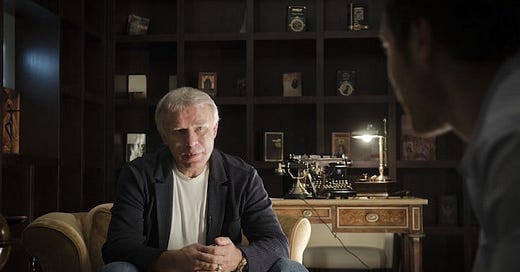Now On DVD: ‘Red Army’ and the Awkwardness of Difficult Subjects

Not every documentary has to call attention to its own craft. Although nonfiction cinema is always reflexive, there are films that get away with more heightened meta-ness while others drown in their own making-of qualities. Some, like Red Army, seem accidental in their extra-reflexiveness by way of either sloppiness or unpreparedness or the difficulty o…
Keep reading with a 7-day free trial
Subscribe to Nonfics to keep reading this post and get 7 days of free access to the full post archives.



